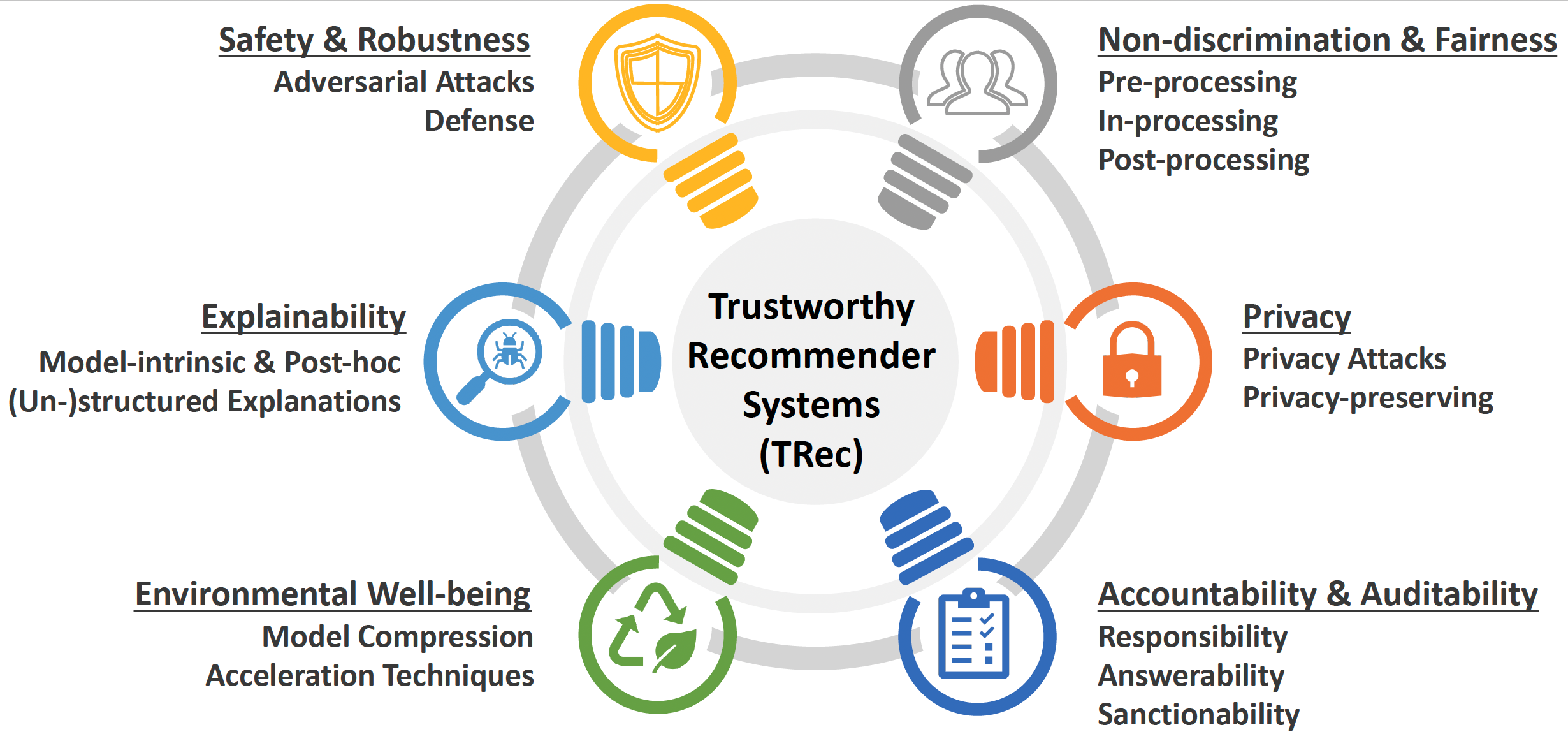INTRO
In the past few decades, the explosive growth of the World Wide Web (WWW) has promoted the increasing demand for recommendation services because of information overload problems. Nowadays, recommender systems as intelligent filtering tools have played an increasingly important role in people’s daily lives via their successful deployments in various user-oriented online services, such as online shopping, jobs matching, financial product recommendations, and medical recommendations. More recently, inspired by the great success of Deep Neural Networks (DNNs) in powerful representation learning abilities, DNN-based recommendation techniques have shown impressive performance across a wide range of tasks.
Although recommender systems can benefit people in daily life, recent studies show that they can have negative impacts on human beings. For example, recommender systems are highly vulnerable to adversarial attacks, where recommendation results can be manipulated by attackers with malicious desires. Meanwhile, the recommendation algorithms can inherit and even magnify the bias behaviors from training datasets, leading to discriminatory predictions for underrepresented groups. In addition, recommender systems are also vulnerable to privacy attacks. For instance, malicious attackers can infer users’ private information from public data. Due to the complicated working mechanisms, recommender systems often make black-box decisions that are hard to be explained to various stakeholders, resulting in unreliable recommendation predictions. These untrustworthy aspects in recommender systems can make unreliable recommendation results and then produce significant harmful effects in various real-world applications, especially those in safety-critical areas such as finance and healthcare, resulting in severe economic, social, and security consequences.
To mitigate these untrustworthy aspects, a great amount of research on trustworthy recommender systems has emerged in recent years. In this tutorial, we will timely provide a comprehensive overview of Trustworthy Recommender systems (TRec) with a specific focus on six of the most crucial aspects; namely, Safety & Robustness, Nondiscrimination & Fairness, Explainability, Privacy, Environmental Well-being, and Accountability & Auditability. For each aspect, we will summarize the recent related technologies and discuss potential research directions to help achieve trustworthy recommender systems in the future.
The topics of this tutorial include (but are not limited to) the following:
- Introduction to Trustworthy Recommender System (TRec)
- Non-discrimination & Fairness
- Safety & Robustness
- Explainability
- Privacy
- Environmental Well-being
- Accountability & Auditability
- Dimension Interactions & Future Directions
